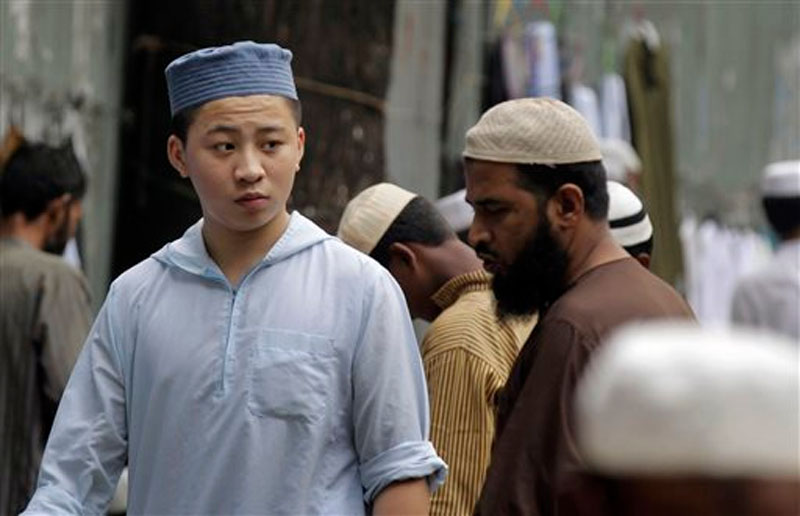Expats spooked after 2 foreigners gunned down in Bangladesh
DHAKA: The cafes and restaurants are empty. The chatter of guests in hotel lobbies has gone quiet. The high-walled embassy compounds are even more closely guarded.
The recent killings of two foreigners in Bangladesh — an Italian and a Japanese — have spooked tourists and expatriates in the moderate, secular South Asian nation, raising alarms about whether Islamic radicals are gaining a foothold and whether foreigners are safe.
The Islamic State group claimed responsibility for both killings, but Bangladesh's government denied the extremist Sunni group was involved. Instead, it accused the opposition of supporting a conspiracy to destabilize the impoverished country of 160 million — a charge the opposition denies.
Any lost confidence in security could damage the country's economy, which relies heavily on foreign aid and investment. Already, hotels and shops catering to the foreign community say they are seeing losses.
"The killings are affecting our business. We had to cancel some bookings," said a five-star hotel manager in Dhaka, asking that neither she nor the hotel be identified for fear of hurting business further.
Another hotel manager, also refusing to be identified, said they have increased security staffing and video surveillance. "If there is any suspicion," he said, "our people in plainclothes are working around the hotel."
Last week's near-identical attacks on Italian Cesare Tavella and Japan's Kunio Hoshi — both were gunned down in daylight by motorcycle-riding youths — stunned many in Bangladesh for targeting two foreigners who had been involved in agricultural projects meant to help the poor. Tavella was shot in Dhaka's diplomatic quarter, while Hoshi was attacked five days later in a village 300 kilometers (185 miles) to the north.
Most of the 224,000 foreigners living in Bangladesh work for embassies, aid groups or one of the many international clothing retailers that are part of the $25 billion garment industry, a pillar of the economy. Several countries, including the US, the Netherlands and Spain, have asked their embassy staff to stay away from crowded places and travel in covered vehicles.
Twelve foreigners approached for comment this week declined to speak with The Associated Press for fear of drawing attention to themselves.
Bangladeshi business consultant Shoaib Aziz said his Japanese wife was "upset and not feeling comfortable" about returning home from Japan, while many of his clients including Japanese businesses "are delaying their planned tour of Bangladesh. They have factories here, but are waiting and rescheduling."
Medical equipment importer Nur Ahmed, who frequently visits foreign clubs including the US Embassy's American Club, said they were emptying early as foreigners head home before dark.
The government insists it has the situation under control, and has sent officials to reassure diplomats and pledged increased security. Prime Minister Sheikh Hasina has built her reputation on promises of cracking down on radicals, banning six hard-line militant groups while police arrested dozens of suspected members in recent years.
While the government is secular and traditionally moderate, the emergence of Islamist political groups has created a clear divide between moderates and radicals and contributed to political instability.
US Ambassador Marcia Bernicat said this week that embassy staff felt safer after the government's reassurances. She praised Hasina's "zero tolerance" of terrorism and said "we have everything we need to fight the emergence" of the Islamic State group in Bangladesh.
Bangladesh has been struggling with a rising tide of radical Islam. At least four secular bloggers and online activists have been hacked to death with meat cleavers this year in attacks claimed by groups linked with the banned Ansarullah Bangla Team. This week, a Christian pastor survived a knife attack by youths allegedly aligned with Islamic militants.
Bangladesh cannot afford a reputation as a hotbed of Islamic extremism. Its economy depends on the garment industry that supplies international clothing brands. With little infrastructure and fewer resources, it has struggled to attract foreign investment in other sectors.
The killings of foreigners "can only make matters worse, since image also plays an important role in the case of economic decisions," Fahmida Khatun, research director of the Dhaka-based think tank Center for Policy Dialogue, wrote in an opinion piece published Monday in the Daily Star newspaper.
Over the last year, Hasina has signed a slew of investment deals to set up special economic zones with countries including Japan, China and India, promising they would bring billions of dollars in investment and drive economic growth.
"This is alarming. Such killings will create panic among foreigners," said S.R. Masum, a political science student at Dhaka University. "People want to know what is going on. We are not at ease."






